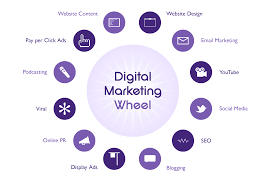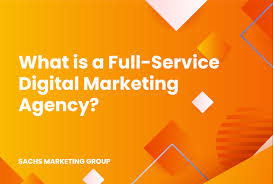The Power of Digital PR Strategy in Today’s Business Landscape
In the fast-paced digital age, having a robust digital PR strategy is crucial for businesses looking to stand out in a crowded online landscape. Digital PR encompasses the use of online platforms and channels to manage a brand’s reputation, build relationships with key stakeholders, and ultimately drive business growth.
Key Elements of a Successful Digital PR Strategy
Effective digital PR strategies often involve a combination of content creation, influencer outreach, social media engagement, and online reputation management. By leveraging these key elements, businesses can enhance their online presence and connect with their target audience on a deeper level.
Content Creation
Compelling and relevant content lies at the core of any successful digital PR strategy. By creating high-quality content that resonates with your target audience, you can establish your brand as an authority in your industry and attract organic traffic to your website.
Influencer Outreach
Collaborating with influencers who align with your brand values can help amplify your message and reach a wider audience. Influencers have the power to drive engagement and generate buzz around your products or services, making them valuable partners in any digital PR campaign.
Social Media Engagement
Social media platforms provide businesses with unique opportunities to engage directly with their audience in real-time. By maintaining an active presence on social media and sharing valuable content, businesses can foster meaningful relationships with their followers and boost brand visibility.
Online Reputation Management
Managing your online reputation is essential for building trust and credibility with consumers. Monitoring online conversations about your brand, addressing customer feedback promptly, and showcasing positive reviews can help shape a positive perception of your business in the digital sphere.
The Benefits of a Strong Digital PR Strategy
A well-executed digital PR strategy can yield numerous benefits for businesses, including increased brand awareness, improved search engine visibility, enhanced credibility, and greater customer loyalty. By investing in digital PR efforts, businesses can differentiate themselves from competitors and create lasting connections with their target audience.
In conclusion, embracing the power of digital PR strategy is essential for businesses looking to thrive in today’s competitive marketplace. By incorporating innovative digital tactics into their PR initiatives, businesses can elevate their brand presence and achieve sustainable growth in the ever-evolving digital landscape.
Essential FAQs on Crafting an Effective Digital PR Strategy
- What are the types of digital PR?
- What is digital PR?
- What are some PR strategies?
- What makes a good digital PR campaign?
- What is digital PR examples?
- What is a digital PR plan?
- What are digital PR strategies?
- What is the PR strategy in the digital age?
What are the types of digital PR?
When exploring the realm of digital PR strategy, it is important to understand the various types of digital PR tactics that can be employed to enhance brand visibility and reputation online. Some common types of digital PR include content marketing, influencer partnerships, social media engagement, online reputation management, press releases, and digital storytelling. Each type serves a unique purpose in building a strong online presence and connecting with target audiences effectively. By incorporating a mix of these digital PR tactics into a comprehensive strategy, businesses can maximise their impact and achieve their communication goals in the ever-evolving digital landscape.
What is digital PR?
Digital PR refers to the strategic use of online platforms and channels to manage a brand’s reputation, engage with key stakeholders, and enhance visibility in the digital realm. It involves leveraging various digital tools and techniques, such as content creation, influencer partnerships, social media engagement, and online reputation management, to effectively communicate a brand’s message and connect with its target audience. Digital PR plays a vital role in shaping a brand’s online presence, building credibility, and driving business growth in today’s interconnected digital landscape.
What are some PR strategies?
When it comes to digital PR strategy, there are several key approaches that businesses can implement to enhance their online presence and engage with their target audience effectively. Some common PR strategies include content creation and distribution, influencer partnerships, social media engagement, online reputation management, crisis communication planning, and community engagement initiatives. By incorporating these strategies into their overall PR efforts, businesses can build brand credibility, foster meaningful relationships with stakeholders, and ultimately drive business growth in the digital realm.
What makes a good digital PR campaign?
A successful digital PR campaign is characterised by a combination of key elements that work together to achieve its objectives. Firstly, a good digital PR campaign starts with a clear and well-defined strategy that aligns with the overall goals of the business. It involves creating engaging and shareable content that resonates with the target audience, leveraging influencers and media partnerships to amplify reach, and actively engaging with followers on social media platforms. Monitoring and analysing campaign performance metrics are also crucial to measure success and make necessary adjustments for optimal results. Ultimately, a good digital PR campaign is one that effectively builds brand awareness, enhances credibility, and fosters meaningful connections with the audience in the digital realm.
What is digital PR examples?
Digital PR examples encompass a wide range of strategies and tactics used to enhance a brand’s online presence and reputation. Some common examples include creating engaging and shareable content that resonates with the target audience, collaborating with influencers to reach a wider demographic, leveraging social media platforms for real-time engagement with followers, and managing online reviews and feedback to maintain a positive brand image. By implementing these digital PR examples effectively, businesses can strengthen their online visibility, build credibility, and foster meaningful relationships with their customers in the digital realm.
What is a digital PR plan?
A digital PR plan is a strategic roadmap that outlines how a business will leverage online platforms and channels to enhance its brand reputation, engage with target audiences, and achieve specific communication objectives. It involves a systematic approach to managing a brand’s online presence through activities such as content creation, influencer partnerships, social media engagement, and online reputation management. A well-defined digital PR plan sets clear goals, identifies target audiences, defines key messages, and outlines tactics to effectively communicate with stakeholders in the digital realm. By developing and implementing a comprehensive digital PR plan, businesses can strengthen their online visibility, build credibility, and ultimately drive positive outcomes in today’s competitive digital landscape.
What are digital PR strategies?
Digital PR strategies encompass a range of online tactics and techniques used to manage a brand’s reputation, enhance its online presence, and engage with target audiences in the digital realm. These strategies typically involve activities such as content creation, influencer partnerships, social media engagement, and online reputation management. By leveraging digital PR strategies effectively, businesses can establish themselves as industry leaders, build credibility with their audience, and drive meaningful interactions that contribute to overall brand success in the competitive online landscape.
What is the PR strategy in the digital age?
In the digital age, PR strategy has evolved to encompass a multifaceted approach that leverages online platforms and communication channels to manage a brand’s reputation, engage with target audiences, and drive business objectives. Digital PR strategy involves creating compelling content, engaging with influencers, utilising social media effectively, and monitoring online conversations to shape a positive brand image. By embracing the digital landscape, businesses can amplify their messaging, build credibility, and establish meaningful connections with their stakeholders in a dynamic and ever-changing online environment.


